A look at who is up and down as well as the chance to review issues like transfers, sponsorship and contracts too.
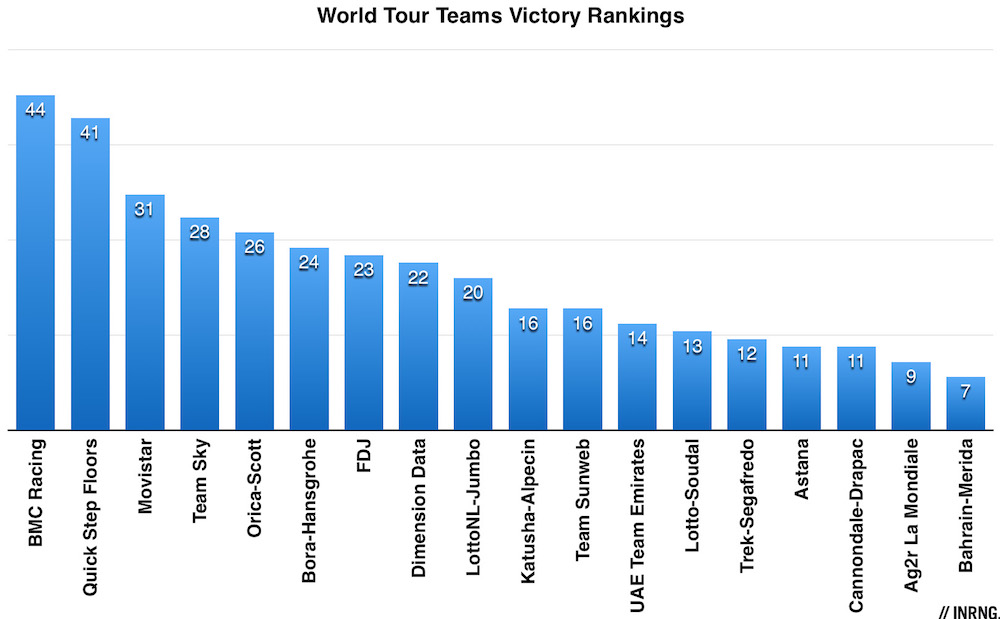
The first surprise is a big one. BMC Racing top the table for a change, ahead of habitual leaders Quick Step although this could merely be a matter of timing, perhaps a week later the Belgian team will get back to the top? With Greg Van Avermaet “only” on seven wins this year it means the success in BMC has been shared out equally with Rohan Dennis on six, the same for Richie Porte and Dylan Teuns on five. It’s Teuns who puts them top having just won the Tour of Poland and the Tour de Wallonie with stages along the way and you might recall his podium in the Flèche Wallonne too, he’s 25 and still developing, will he become a grand tour contender or a specialist in shorter stage races and explosive uphill finishes?
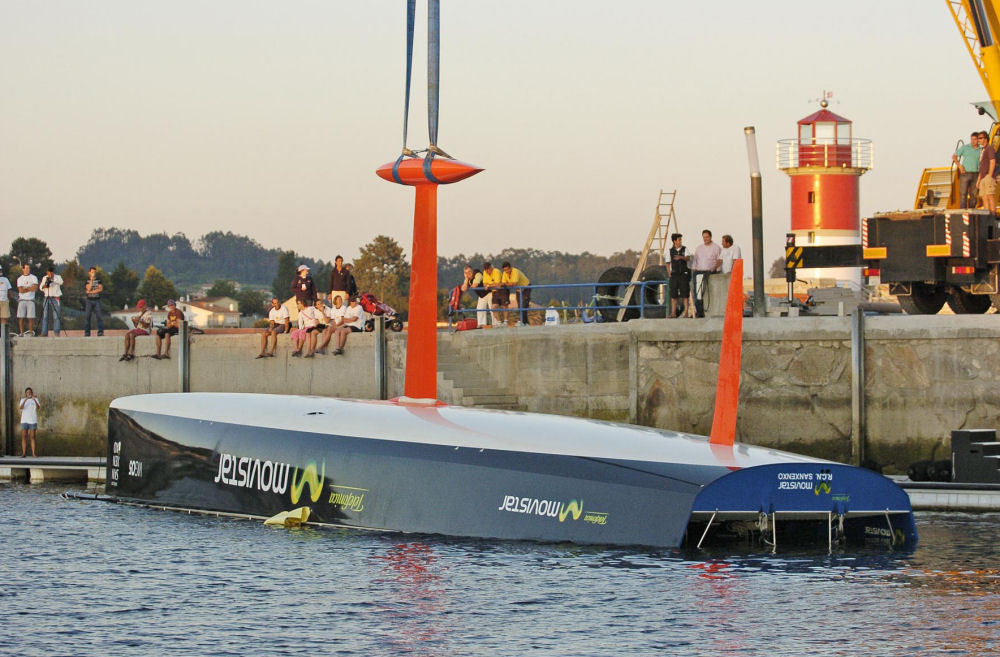
Movistar are third. When the year comes to an end and Eusebio Unzué is eating his 12 grapes he could be glad to see the back of 2017, a year when many of his best plans have sunk to a watery grave. So many wins but the Giro saw them come up short and they were invisible in the Tour after Alejandro Valverde crashed out and Nairo Quintana looked as stale as a three day old baguette. The Vuelta next could be a worry, their home race but they’re without a leader and if there’s promising talent to test the wins could be hard to come by.
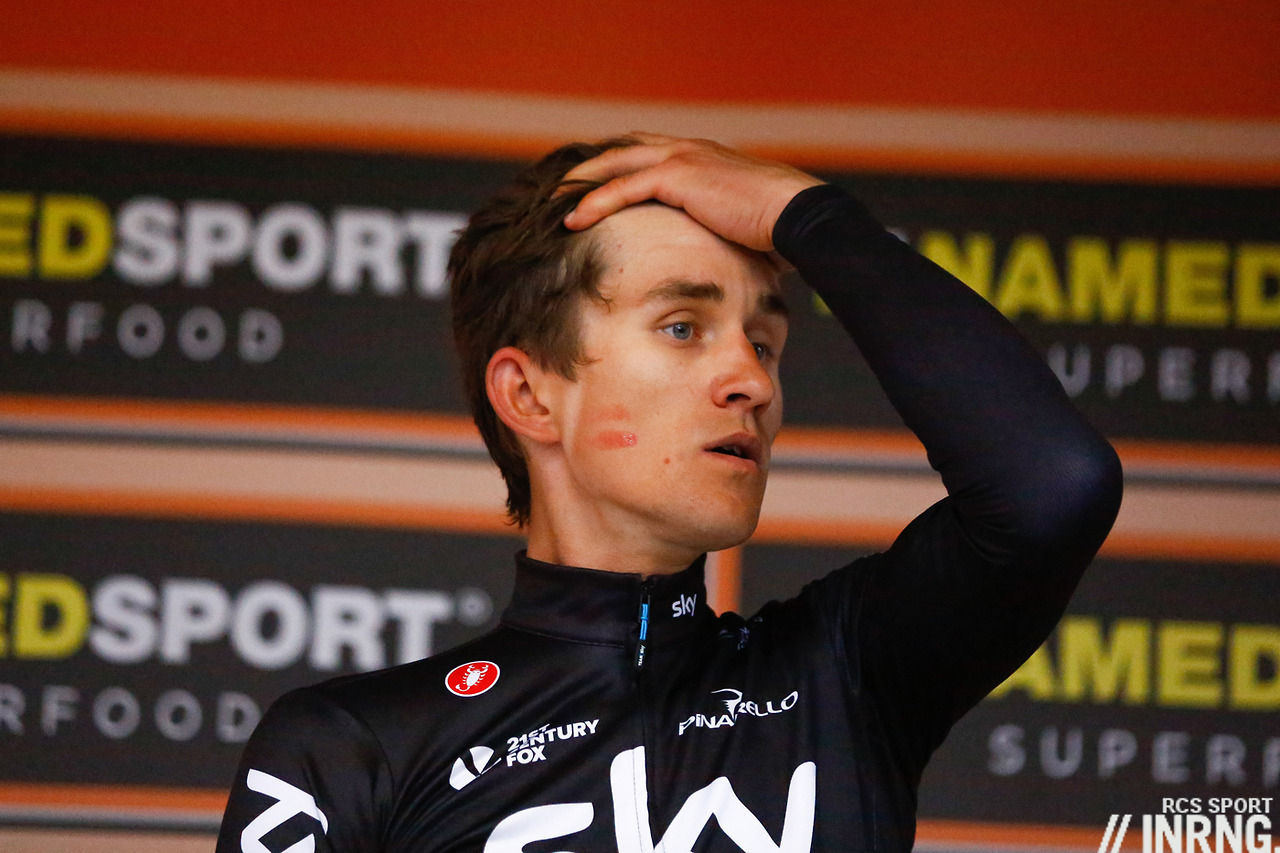
Team Sky’s most prolific victor? Michał Kwiatkowski with four wins. For all the imagery from the Tour de France of them falling in behind one leader, 13 of the team have won so far this year.
Orica-Scott have been active in the transfer market recruiting Mikel Nieve to act as valuable mountain support for the Yates brothers and Esteban Chaves. Three GC contenders is plenty for a team and they’ve got Caleb Ewan too so how they manage this with Ewan’s contract expiring at the end of 2018 remains to be see. That’s their problem and potentially our delight with a triple prong of Yates² plus Chaves going into the Vuelta, and all on a tactically ambitious team.
FDJ sit relatively high. They’ve been recruiting support riders internationally. They’re also shopping for a co-sponsor to accompany the French lottery FDJ and have hired sports media agency Infront to find someone.
Team Sunweb sit low down but need not worry, earlier this year they were one of the squads very few wins and now they’ve made up for it with quantity and quality, taking the mountains and points jerseys in the Tour and the overall in the Giro.
Katusha have announced two curious signings in Nathan Haas from Dimension Data and Ian Boswell. Will this change their win rate? Perhaps especially as Haas can win a big race, he was in the mix in the Amstel Gold earlier this year. But the interest is also in their nationality and ability to communicate. Many English-speaking fans probably find Katusha leave them cold, the likes of Ilnur Zakarin and Simon Špilak are not big personalities even in their home languages so two anglophones should help the team reach a wider audience.
Trek-Segafredo took a win today with Edward Theuns, a much needed triumph and only their tired win in the world Tour this year after Bauke Mollema’s Tour de France stage and Fabio Felline’s prologue win in Romandie. Suddenly everything has changed with Alberto Contador’s retirement announcement, it seemed to appear on his Instagram hours before the team got around to announcing (did they know?). Either way it means a substantial seven figure sum of budget is freed up for next year and they’ll be evaluating an offer for Mikel Landa or Fabio Aru.
Astana prove that budget doesn’t always bring wins and they need a big signing for 2018, whether that includes Fabio Aru remains to be seen. Part of the Vuelta’s attraction is it’s late spot on the calendar, the last chance to salvage a prestigious win and Astana fall into the category of needing something to cheer.

Bahrain-Merida languish in last place. They’re a new team and it takes time to get going but all the same they’ve got a substantial budget and ought to be getting more results. They were almost invisible in the Tour de France and if they lost their leader Ion Izaguirre on the opening day the rest of the squad didn’t look they’d have been much help for him. The Vuelta is a big test with Vincenzo Nibali aiming for the overall win.
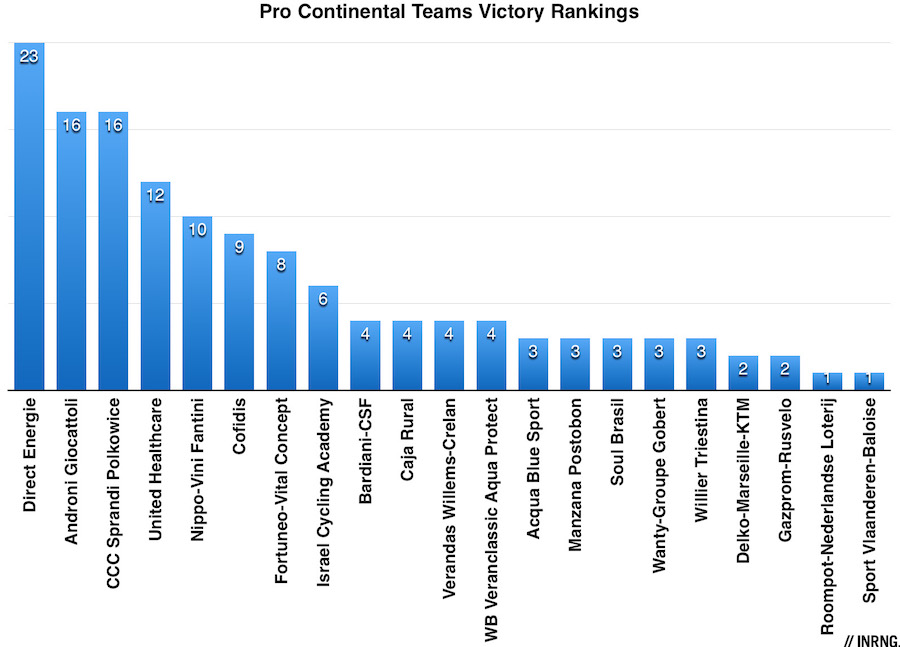
The Pro Continental ranks contain 22 teams and they’ve all had one win so far. Direct Energie top the table and this despite the troubles with their house sprinter Bryan Coquard who was dropped by the team since announcing he was signing elsewhere. A fit of pique from team manager Jean-René Bernaudeau? Certainly but it’s worked out well given Coquard’s form and Lilian Calmejane’s box office win in the Tour de France. Several teams need to copy Fortuneo-Oscaro’s signature of Warren Barguil. The Breton team are now incontournable as the French say, unavoidable, for a wildcard invite to the Tour de France. The same policy could work wonders for the likes of Androni, Wanty-Gobert or CCC-Sprandi in order to secure a Giro start although it’s sometimes whispered that sponsoring the race direct helps better.

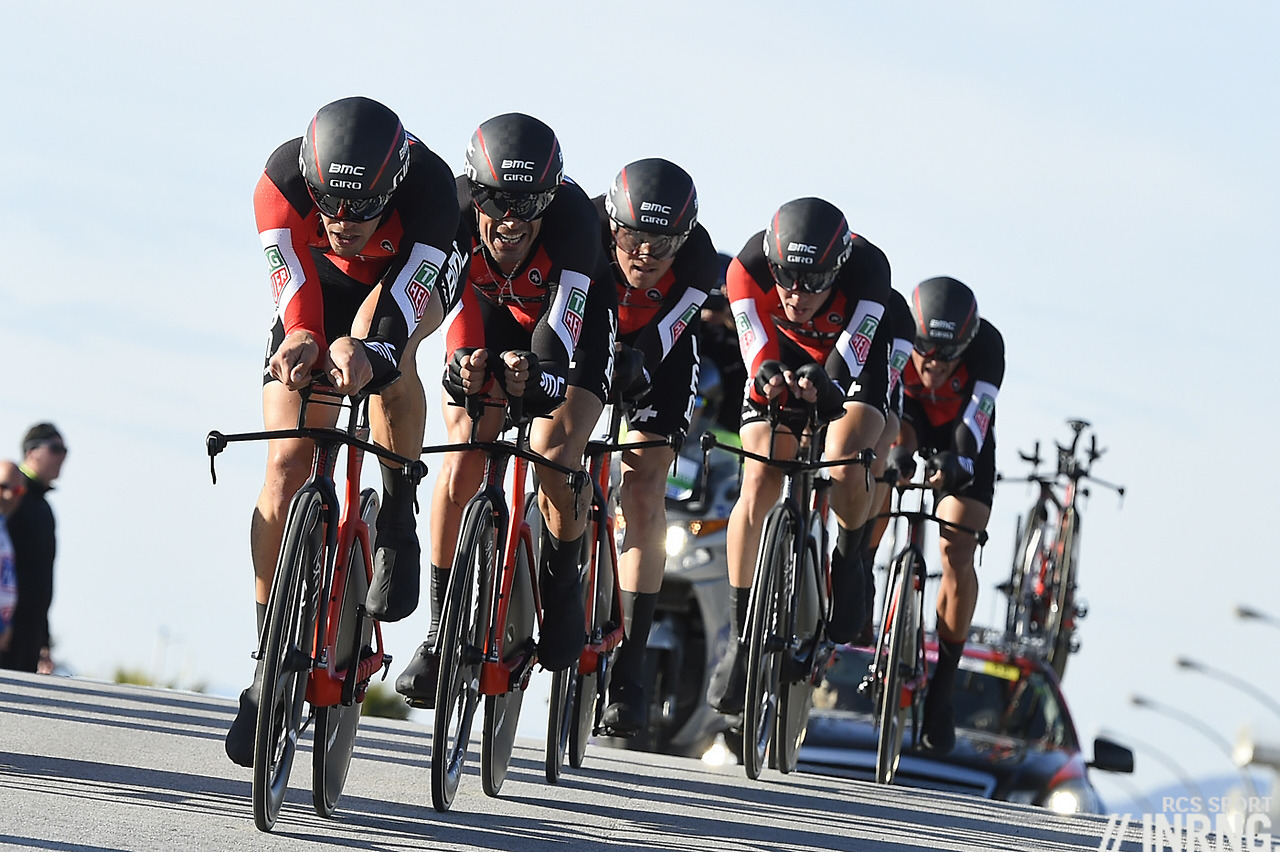
What would the league table look like in terms of prize money winnings?
I would imagine that might shuffle the pack a bit, especially with SunWeb and Sky winning the Giro and Tour respectively. But I suspect there would still be notable under performers such as Astana. A friend of mine suggested the Kazakh outfit maybe close to disbanding given they appear to lack the drive and investment to win, and that they included a hat full of no name Kazakh riders in their Tour team.
Not cash, but PCS’ team ranking based on prestige points has Sky at 2nd and Sunweb at 6th, though the top places do look quite similar and with BMC still out ahead.
But Cannondale at 7th and Trek Segafredo at 8th respectively look quite different when factoring in prestige as opposed to pure number of wins.
It is interesting to look at both methods and each can be telling in their own ways.
Ag2r look dire on Inrng’s table, though they’re at 10th with PCS. But still lower on both counts than we might have imagined, at least with the Tour’s heroics fresh in the mind?
Not to defend Astana too much, but they looked a whole lot better in the Tour before Fuglsang crashed out, think of how they snatched the Dauphine off Porte on the final day by using Fulgsang and Aru to put pressure on the BMC leader, and so had Fuglsang remained in the TDF less would probably be made of the Kazakh domestiques.
Astana are signing up younger talents such as Formolo and Cort, so it seems they are planning for the future.
I disagree. While Aru and Fuglsang are good riders, and they did well at the Dauphine, expecting them to be able to compete without a team capable of protecting them in a three week race is a far different prospect.
It’s notable that Aru lost the yellow jersey because he was badly placed on the uphill ‘puncheur’ stage. You need a train of team mates in the right place to keep you in the right place at the right time.
Fuglsang’s loss was very important because he was the only rider that Aru had who was experienced enough to provide any support, but I don’t know if he would have prevented that particular time loss.
He was lucky that there weren’t more Cross wind days
Did Fuglsang have any interest in helping Aru? As far as I recall, they acted more like competitors against each other than team mates working with each other. With Fuglsang declaring himself as a co-leader before the tour, it appeared to me that he was only interested in getting a high GC place for himself.
AFAIK Astana planned the season with Fuglsang being the leader for the tour. Aru was to lead Astana in the Giro. The way you write it, it sounds like Fuglsang declared himself to be a leader at tour, but it was Aru that was introduced as a late change of plan.
Aru’s team mates were placing him perfectly in that particular run-in… He was just losing the wheels.
The young Dane was especially annoyed with Aru for that, knowing people would blame him/the team for losing yellow. If you recall he did a TV interview straight after the stage.
Still, Aru and Fuglsang were racing each other for 3rd at best anyway.
They were, and in any case I wouldn’t say you need a team of riders to assist, you need racecraft. It’s possible to do it with zero teammates.
Trek-Segafredo’s “tired” win is a good one, as far as writing errors go.
A hot subject of speculation is indeed whether the team will pursue someone to fill in his cycling shoes (and if so, will they get their quarry to sign on the dotted line) or whether they will settle for a stage hunter and/or classics rider
Team victory ranking is a curious thing in that sometimes there seems to be a huge discrepancy between how visible – obviously a highly subjective quantity – a team has been and where it stands in the ranking. I, for one, rate Bahrain-Merida as much more visible than UAE Team Emirates and AG2R much more visible than either of them.
Surely they would want another GC rider? They ‘only’ have Mollema and he is in doubt whether he’ll continue riding for the GC in grand tours (he said he might want to do one for GC and another as stage hunter). It might suit him looking at his season so far: Giro was not bad and an epic stage win in de TdF. Even if they don’t ride for the GC in one GT that leaves another one.
I wonder how much of the difference in visibility between Bahrain and UAE is simply down to design. Bahrain’s big bold red-orange kit is simply more noticeable than UAE’s nondescript mess.
Good question! And perhaps a good tip to some of those non-winning, non-visible teams – but if everyone followed that piece of advice, the peloton would surely become quite painful to watch as teams would have to resort to ever bolder kits in order to be noticed:-)
It could also be a matter of the spectator’s expectations, too. If you keep an eye open on the possibility that a rider from team A might make a move worth watching, you would certainly notice the team better than if you hardly remembered that such and such team exists and had to look up the name of the team in that bold kit.
A case in point: CCC Sprandi Polkowice was noticeable in the first or even the second stage I watched, but then I had no reason to pay attention – and the end result is that I have no recollection of that team’s achievements, if there were any in the race(s) I saw.
Nice informaton . Would have been nice to represent the budgets in the chart mr inrng .
Some graphs including budgets from last year (UCI points instead of wins): https://cyclingtips.com/2016/07/can-success-be-bought-in-pro-cycling-a-look-at-team-budgets-and-the-value-equation/
Thanks INRNG, Ian Boswell to Katusha, that is interesting, was he destined to find a new
ride or was this a move on his own to get more GC opportunities?
Perhaps the start of a John le Carré style novel.
Orica would be better placed if instead of having 3 specialist climbers, they had one of their 3 GT contenders who was strong in the TT, then they could approach the GT’s depending on the courses available.
It seems, from the last year, that their isn’t really a stand-out climber in the peloton who can gain significant time on anyone else. Perhaps it is the case the we could reach ‘peak climb’ where human physiology prevents a person from being exceptional above a particular level.
Okay, enough of my ramblings.
Orica don’t just have Yates x 2 and Chaves but also Haig has made remarkable progress and will be looking for some support in 2018, at least in a one week race (Haig not yet renewed for 2018 but, as an Aussie, Orica would surely not let him slip away)
Appears that S Yates will be riding PRO Otztaler 5500 on 25th August (Cycling News) which is of course incompatible with Vuelta. Signs that Orica realise they have too many climbers to support and not enough space for that support, or maybe that he needs some more days recovery from TdF.
Agree about lack of stand-out climber: a logical result of better and standardised training preparation (altitude, weight management, power observation…)?
actually Somers, you make a good point and something I pondered on this summer. Even Nairo seems to have lost the ability to get away and stay away on a climb these days, and Aru looks to be the only one who could possibly do that now – maybe the Vuelta will tell us a different story. Landa as a bone fide leader would be interesting also.
It does make it hard to see past Froome, Dumoulin (maybe Porte, if he could ever get it together for 3 wks) as likely GT winners of events they enter, with their TT abilities.
Watching the Giro it seemed like nobody could get away at all. Nibali, Quintana and Pelizzotti tried and got nowhere. It was only on the last mountain stage that Zakarin and Pozzovivo managed to get a bit of a gap, and it wasn’t much. Aru at the Dauphine seemed like a breath of fresh air. He was able to attack, get a gap and maintain it, even if it didn’t get him much you could see he was in shape. He managed it in the first half of the Tour as well but then seemed tired by the end. Barguil seemed able to attack sharply but it was hard to tell if anyone was actually bothered. Nowadays climbers are chased down by team mates (the much talked about Sky train, also Quintana had Amador and Anacona doing a lot of work for him at the Giro) who can burn themselves out to bring them back leaving their team leader to counter attack and bury whoever it was who was brave/stupid/naïve enough to attack. They also set such a fierce pace in the first place it is almost impossible to attack and leaves the last couple of hundred metres to try and grab a few seconds. Back in the day it was more mano a mano and someone like Indurain or Ullrich or Zulle maybe had to be a bit careful more about pacing their efforts in order contain the knee jerk accelerations of someone like Pantani. Also, they generally had such enormous leads from the 100 odd km of time trials that maybe Pantani and his ilk were seen as somebody they could let go without too much worry, similar to Barguil this year, apart from when Pantani was utterly unstoppable in 98/99. It would be great to see a properly rested and sharp Quintana and Landa with a fully supportive team behind him going against Froome and Tommy D in the mountains next year, even if ultimately they weren’t successful.
For all your praise of Aru at the Dauphine, it is worth remembering that Fuglsang was even more successful in that race and won it by attacking and staying away on a climb. I get the feeling that you are a fan of Aru (nothing wrong about that) but in not seeing Fuglsang’s results, especially his victory at the Dauphine (with 2 stage wins) you write a story here that is based on cherry-picking results as facts to support your claims.
Both Fuglsang and Richie Porte (in the Romandie) won races by attacking and staying away on a climb. Quintana also did that, but early in the season. In the Giro he only managed that on Blockhaus. Before we sum up the year as far as effects of the attacks on intermediate to long climbs goes, let’s also consider how the Vuelta goes: Chris Froome so far this season has not played this card, and he used to be quite good at it.
From what I have sen in the grand tours this year, Mikel Landa appears to have the necessary abilities to win based on climbing but combinations of bad luck and unsuitable parcours at the Giro and his role in the team at the tour has kept him from proving it with results.
Landa had his moment on the Isoard, but got hauled back in…
It’s not so much the Barguil types, who have bought themselves freedom by dropping time early in the race, but in the real GC nitty gritty no one seems to be able to get away on the hills. Maybe it’s the parcours from the recent particular GCs. I don’t buy the ‘Sky are so strong’ narrative either, as that has been going on for decades, they are just the most recent embodiment of it.
Not a fan of Aru at all (neither am I specifically against him) so in that sense you couldn’t be wider from the mark. My point was you could see Aru had good shape regardless of the fact he got no result. Fuglsang never entered my head. It’s you who sounds like the fan boy. Danish per chance?!
no word about sixth placed Bora?
I’ll second that and sing their praises – for all the worries about them becoming a one-man, Sagan-centric band, they’ve been a really pleasant surprise and have animated races throughout the season, from Pöstlberger’s surprise coup in the Giro to Bodnar’s increasingly impressive ITT results. They’ve become my favourite underdog team, especially based on the gritty performances of their young climbers Patrick Konrad and the very promising ‘Emu’ – Emanuel Buchmann.
Ten of their wins come from Sagan. Still quite a lot but I agree, the rest of the team is pitching in quite well. Though don’t forget that five other wins come from national championships, and in some of those countries there are not a lot of pro riders.
Well, while in countries with a lot of pro-riders like Germany and Austria, they got winner and runner-up….
Not sure you can call the team that signed a two time reigning world champion at great expense an underdog team.
Point taken – I mean’t in the absence of Sagan.
Androni are racing away with the Coppa Italia at the moment. The winner is guaranteed entry to the Giro so they are unlikely to bring in a big name to try and get a WC. Presume Gazprom will get in via the sponsors route and Israel Cycling Academy, who’ve really pushed on this year, are trying to sign Ben Hermans to lead their Giro team so presume they have either been guaranteed an entry or are on a strong promise given where the race is starting. Not sure how many team slots the 8-man GT ruling opens up but I’d assume an Italian team or two will miss out again.
Hilariously bleak Movistar pic, made me laugh! I know they win a lot in Spain that others don’t and Valverde has been a lot of their winning too, but they must be the team with the most wins to least visibility (and vice versa, in the Giro…).
All this reminds me of your post on the future of Spanish cycling – Contador now going, Valverde’s future very much in doubt, Purito gone – it’ll be all the more interesting to see how Soler does in the Vuelta but other than Landa there’s nobody in Spain at the level of those that are retiring or retired.
Hilarious maybe, but appropriate? Not even on a pound of LSD and ten bottles of stale three-year old akvavit. Despite their TdF, Movistar are having a good season, perhaps short of expectations, but with many objectively good results (for both Valverde and Quintana as for the rest). and the number of victories simply reflects it. They’re a consistently strong side. Their tactics drive me nuts, but their general level can’t be joked on.
I looked up the photo. Despite the bleak image, the back story isn’t bad.
http://www.yachtsandyachting.com/news/18037/movistar-passes-safety-test
Ohh John S, I soooo wanted to believe that it had been caught in cross winds 🙂
Hey I posed this in previous comments without much feedback but why wouldn’t Astana and Landa be in discussions? Was that bridge burned that I’m unaware of? With Astana’s “need of a big signing in 2018”, would that not be ideal for both.
What is Bharain-Merida’s budget compared to other teams? I thought they entered the fray with the idea they had a lot of money, top riders,etc., yet they have attained the least victories. Would they feature higher on a points graph? Sorry, but the stats interest me….
An estimated budget of circa €17 million, with a three year goal “to have a mega team…like BMC or Sky”.
PCS Team ranking has them down at 18th also.
A lot of money but ‘top riders’? No. It’s hard to put a good team together from scratch but they signed a large number of riders aged 30+ and plenty of Slovenian riders. The team management and the agents they used appear to be very close. If I were Prince Torture I’d wonder if I wasn’t being taken for a bit of a ride. And not just for selfies with Nibali.
“The Pro Continental ranks contain 22 teams and they’ve all had one win so far.”
Nope, Novo Nordisk is still without one. They’re Pro Conti in name only, sure, but still…